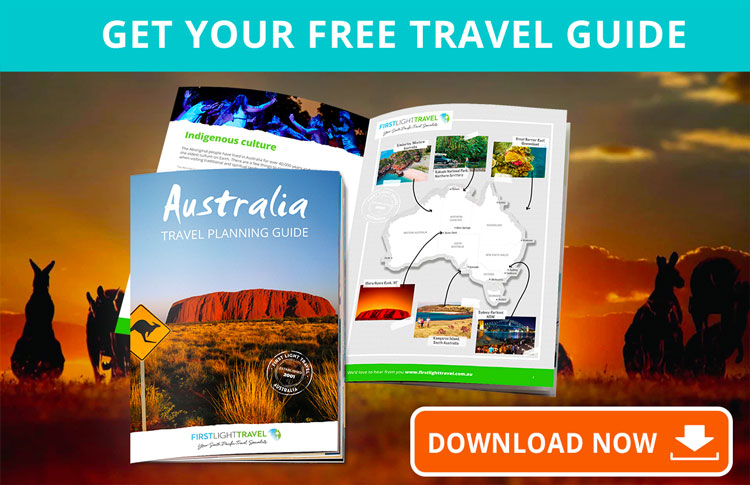Business and Retail hours
General business hours are from 9:00 am to 5:00 pm, Monday to Friday. Supermarkets, retail stores, and local convenience stores are also open during the weekend.
Most stores are open until 9 pm on weekdays until 5 pm on Saturdays and from 9 am to 5 pm on Sundays and full-day public holidays. Operating hours in rural and smaller towns may be much shorter, so it pays to plan ahead.
Climate
The Australia climate is changeable and can be unpredictable. The climate varies greatly throughout the six states and two territories:
There are four seasons across most of the country, and the Tropical North has a wet and dry season. In the tropical north December to February is known as summer, March to May is autumn, June to August is winter and September to November is spring.
What are the Timezones in Australia?
Australia is divided into three (3) separate time zones:
1) Australian Eastern Standard Time (AEST) covers the eastern states of Queensland, New South Wales, Victoria, Tasmania & the Australian Capital Territory. AEST is equal to Coordinated Universal Time plus 10 hours (UTC +10).
2) Australian Central Standard Time (ACST) covers the state of South Australia, the town of Broken Hill in western New South Wales and the Northern Territory. ACST is equal to Coordinated Universal Time plus 9½ hours (UTC +9½).
3) Australian Western Standard Time (AWST) covers Western Australia. AWST is equal to Coordinated Universal Time plus 8 hours (UTC +8).
Currency and Money
Australia’s national currency is the Australian dollar (AUD).
Australia has a decimal currency system with notes in denominations of 5, 10, 20, 50 and 100. Coins are in 5, 10, 20 and 50 cent denominations as well as 1 and 2 denominations.
Major credit cards are widely accepted. Automatic Teller Machines (ATMs) are commonly found in retail/urban centers.
The Discover credit card is generally NOT accepted in Australia. Credit card issuers commonly charge anywhere from 1% to 3% for purchases made in other countries. Traveler’s cheques may be exchanged at many banks, hotels and Bureaux de Change in international airports.
Dangers and Annoyances
Australia is known for its unique and varied wildlife. During your trip, you are unlikely to see any dangerous animals, let alone come into contact with them. However, it is important to watch out for a few hazards and dangers on your trip to Australia.
Shark attacks in Australia are rare. Shark netting on Australian beaches deter sharks, but you can further reduce your risk by swimming between the flags on patrolled beaches and not swimming or surfing at dusk or evening. When the jellyfish season starts you will be provided with stinger suits when you take part in organized activities such as snorkeling.
Crocodiles live in rivers across northern Australia, often changing habitat via sea. When you are travelling near crocodile habitats, observe the safety signs and do not swim in rivers. The only harmful spiders in Australia are the Redback and Funnel Web, however, there have been few deaths from spider bites since antivenoms were made available in 1981.
Statistics show that it is pretty unlikely to come into contact with something that will hurt you, especially when you are in the cities and on a short-term holiday.
Australia is a beautiful country; do not let the fear of dangerous animals keep you away from travelling down under.
Crime
As with most developed countries, travelers should be aware of their own personal safety and possessions. There are similar levels of crime to other first world countries.
Natural Disaster
Australia is a relatively safe place to travel, but natural disasters on the odd occasion wreak havoc. Think about bushfires, floods, and cyclones. Check the weather warnings and do not venture into affected areas without an emergency plan or information about the area.
The harsh Australia sun can catch out travelers – whether on the beach or on the water. Remember to regularly apply sunscreen, wear hats and use protective eyewear.
Driving
Driving is on the left-hand side. You can legally drive in Australia for up to one year with a current and valid driver’s license.
If your license is not in English, you should bring an English translation with you as rental car companies may require it.
Roads in rural and remote areas can be winding, narrow and hazardous. Exercise extreme caution when driving and always drive to the conditions.
Emergency Services
In an emergency, dial 000 for police, the fire or ambulance services.
ES assistance in floods and storms: 132 500
International incident emergency helpline: 1300 555 135 (within Australia)
Health, Vaccinations and Medical Facilities
There are no vaccinations required to enter Australia. However, medical care is not free for visitors and health insurance is recommended for all travelers.
If you need to bring in large quantities of medicines, you are advised to also bring a certificate from your doctor to avoid any issues with Australia Customs on arrival.
Internet/ Phone/ Electricity
If you are bringing mobile devices such as phones, laptops and tablets, and want to stay connected during your journey you have a few different options. Free Wi-Fi hotspots are found in major cities, airports, and hotels. Mobile phone coverage may be limited in remote and some rural areas.
You can purchase a plan from a mobile network provider (such as Telstra, Optus, Vodafone, and Virgin Mobile).
Public telephones are widely available in Australia although most only accept phone cards. Some accept major credit cards and coins.
Electricity is supplied at 230/240 volts, 50 Hertz. Power outlets only accept flat three or two-pin plugs. An adaptor/ converter will be necessary for appliances.
Measurement systems
Australia uses the metric system of measurement.
1 centimeter (cm) = 0.39 inches
1 meter (m) = 1.1 yards
1 km (kilometer) = 0.62 miles
To convert from C to F: multiply by 9, divide by 5 and add 32.
Protecting the Environment
To protect the flora and fauna of Australia, there are very strict biosecurity rules for all travelers entering the country.
For information on what food and items must not be brought in, what is restricted, prohibited or must be declared, visit the website of the Australian Government.
Public Holidays
Australia’s national public holidays are New Year’s Day, Australia Day (26 January), Good Friday, Easter Monday, Anzac Day, Christmas Day and Boxing Day (26 December). Anzac Day marks the anniversary of the first major military action fought by Australian and New Zealand forces during the First World War (25 April),
All other public holidays such as the Queen’s Birthday and Labour Day are individually declared by the state and territory governments.
During public holidays, sites and attractions may be closed or busier than usual so travelers should plan ahead. See the dates for National Public Holidays and regional holidays in Australia.
School holidays may also add to busy times.
Is it customary to tip in Australia?
Tipping is not obligatory but is appreciated for exceptional service or kindnesses. 5 to 10 percent is an acceptable amount.
Service charges are generally not added to bills by hotels, restaurants or bars. Occasionally a service charge is added to food and hospitality charges on a public holiday.
Smoking
Smoking is not allowed in most public buildings, including bars and restaurants and may be restricted in public spaces (look for signs if this applies).
A growing number of restaurants and bars have set up outdoor seating areas and some of those accommodate smokers.
Tax
Australia has a Goods and Services Tax (GST) of 10 percent. This includes items bought in shops as well as dining out. The only exemptions are fresh food such as milk, bread etc.
All prices listed include tax, so you should never have to pay more than the advertised price.
Transport
The larger urban centres are served by taxis (including Uber), buses, ferries and trains.
Travelers with Disabilities
Most tourism facilities have wheelchair access but it is advisable to check before booking. You can apply to for parking permits for disabled drivers.
Water
Tap water is safe to drink in rural towns and cities. Larger centres may fluoridate their water supplies.
Suggested Packing
Australian people are regarded as fairly casual dressers (although you may need to dress more formally for an art event or when visiting a fine dining restaurant).
For summer visits it is advisable to bring a light sweater or wind-breakers for cooler evenings and brisk days. Medium-thick clothing and layers, hats and gloves are essential for mountain peaks and glaciers. A raincoat and strong walking boots/shoes are useful.
For packing lists and further comprehensive info please refer to What to pack for your Australia Holiday.
Language
Australian people speak English as their first language. Australian English is similar to British English but has its own colourful vernacular, called ‘ strine’.



